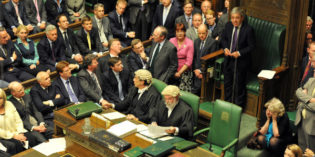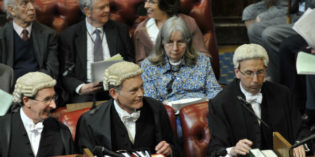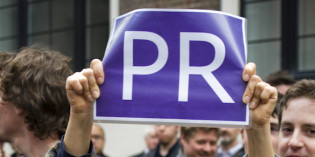The 2017 Audit of UK Democracy

Audit 2017: How democratic is local government in Scotland?
Local authorities play key roles in the devolved government of Scotland, as the only other source of elected legitimacy and as checks and balances on the domestic concentration of power in Scotland’s central institutions. As part of the 2017 Audit of UK Democracy, James Mitchell and the Democratic Audit team explore how democratically local councils have […]

Audit 2017: How democratic are the central institutions of devolved government in Scotland?
Devolved government in Scotland started as a radical innovation in bringing government closer to citizens, and its development has generated great expectations including strong pressures for and against the Scottish Parliament and government becoming the core of a newly independent state. As part of the 2017 Audit of UK Democracy, Malcolm Harvey and the Democratic Audit […]

Audit 2017: How effectively is the representation of minorities achieved in UK public and political life?
As part of our 2017 Audit of UK democracy, Sonali Campion and Ros Taylor examine the extent to which the representation of minorities in the UK operates to foster or to damage democratic public life. Where previous historical inequalities and discrimination against ethnic minorities are being rectified, is the pace of recent change fast enough? Are there areas where […]

How democratic is the UK’s participation in the European Union?
As part of the 2017 Audit of UK Democracy, Stuart Brown examines the extent to which the UK’s participation in European and international institutions affects the quality of UK democracy. Overall, while some positive reforms have taken place at the European level since 2012, the UK’s uncertain relationship with the European Union and a general lack of […]

How effective is Parliament in controlling UK government and representing citizens?
As part of our 2017 Audit of UK Democracy, Artemis Photiadou and Patrick Dunleavy consider how well the House of Commons functions as a legislature. Is Parliament still an effective focus of national debate and close control of the executive? And how well does the Commons function in scrutinising and passing legislation, or monitoring policy […]

How democratically accountable are the UK’s security and intelligence services?
As part of the 2017 Audit of UK Democracy, Sean Kippin and the DA team assess the ways in which the UK’s four main security services are scrutinised, to ensure that they are operating legally and in the public interest. For matters that must be kept secret, ‘compromise’ forms of scrutiny have now been developed in Parliament. […]

How democratic is the UK’s House of Lords, and how could it be reformed?
As part of the 2017 Audit of UK Democracy, Sonali Campion, Sean Kippin and the DA team examine how the UK’s deeply controversial current second chamber, the House of Lords, matches up to the criteria for liberal democracies with bi-cameral legislatures. Now an almost-all appointed Chamber, the House of Lords has had some prominent or more bipartisan influence on moderating Commons […]

How democratic are the UK’s political parties and party system?
As part of the 2017 Audit of UK Democracy, Sean Kippin, Patrick Dunleavy and the DA team examine how democratic the UK’s party system and political parties are. Parties often attract criticism from those outside their ranks, but they have multiple, complex roles to play in any liberal democratic society. The UK’s system has many […]

Audit 2017: How effectively is gender equality achieved in the political and public life of the UK?
As part of the 2017 Audit of UK Democracy, Sonali Campion and the DA team examine the extent to which gender equality provisions in British public life accord with democratic requirements. Where previous historical inequalities and discrimination against women are being rectified, is the pace of recent change fast enough? Similar PostsThe junior doctors’ new […]

How democratic are the UK’s two proportional electoral systems?
As part of the 2017 Audit of UK Democracy, Patrick Dunleavy and DA staff examine the two proportional (PR) electoral systems now used in the UK, albeit for smaller elections – Scottish and Northern Irish local government, and choosing Members of the European Parliament (although the latter will come to an end when Britain leaves […]


 Democratic Audit's core funding is provided by the Joseph Rowntree Charitable Trust. Additional funding is provided by the London School of Economics.
Democratic Audit's core funding is provided by the Joseph Rowntree Charitable Trust. Additional funding is provided by the London School of Economics.